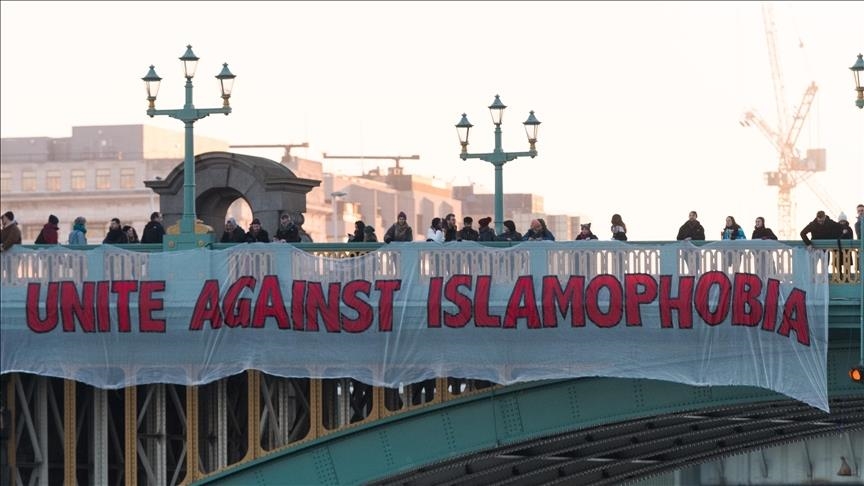'Very dangerous': UK government's new extremism definition demonizing Muslims, minorities
Controversial definition another attempt by government, politicians to stoke culture wars and perpetuate Islamophobia, secretary general of Muslim Council of Britain tells Anadolu

- 'Obviously this is connected to Palestine,' Zara Mohammed says, pointing to timing of policy as solidarity with Palestinians surge amid Israel's devastating Gaza offensive
- 'It's going to be more difficult to be a Muslim in public life,' warns Mohammed, pointing to more than 300% increase in Islamophobic attacks and abuse
LONDON
With a controversial new definition of extremism championed by the UK's communities secretary, British government officials are accused of playing a dangerous game of politics that involves the "divisive targeting" of Muslim communities and pro-Palestinian groups.
"We believe that the government, and Michael Gove in particular, is playing politics. Of course, we believe extremism should be tackled and it's a serious issue," Zara Mohammed told Anadolu in an interview.
Mohammed is the secretary general of the Muslim Council of Britain (MCB), a leading advocacy group for the country's Muslim community. She is also one of the many voices speaking out against the new official definition of extremism released by the government last Thursday.
Under the new definition, extremism is "the promotion or advancement of an ideology based on violence, hatred or intolerance" that "aims to destroy the fundamental rights and freedoms of others or undermine, overturn, or replace the UK's system of liberal parliamentary democracy.
An official statement that accompanied the move has said that groups labeled "extremists" will be barred from receiving government funding and meeting with officials.
According to Mohammed, it amounts to a thinly veiled attempt to demonize the country's Muslims.
"Look at the timing ... look at when and where and who's being targeted. We are not tackling extremism, we're just demonizing Muslim communities and minorities yet again, this is very dangerous," she said.
Pointing to the fact that the move comes at a time when solidarity with Palestinians have been surging amid a devastating Israeli offensive on the Gaza Strip, she said it serves to fuel "culture wars" and exacerbate Islamophobia rather than genuinely addressing extremism.
She expressed concern over the lack of a clear legal definition of extremism, allowing the government unchecked discretion in labeling individuals and groups.
"What makes it dangerous is that this is not a legal definition. This is something that the government gets to decide who is extreme and who is not. And that's what makes it very worrying," she warned.
Links to Palestine issue
Mohammed underscored the connection between the government's actions and the ongoing conflict in Palestine, suggesting that political motives were at play.
"What I would say is that obviously this is connected to Palestine ... We know and appreciate that the strength of feeling the solidarity, the protest is all connected to this because the prime minister alluded to that in his speech," she said.
She was talking about a speech by Prime Minister Rishi Sunak early this month when he denounced what he called extremists trying to stoke division in the UK by "hijacking" pro-Palestinian protests in the UK. His controversial remarks were met by alarm and indignation by many, including lawmakers and other political figures, as well as civil society groups.
Mohammed said the new definition of extremism was definitely political as it plays "to certain narratives and sides on this issue," pointing out that 66% of British non-Muslims believe there should be a cease-fire in the Gaza Strip.
"Palestine is not a Muslim issue, with people from all faith communities, unknown people from all walks of life, families, including Jewish communities that are also saying enough is enough," she asserted.
'It's going to be more difficult to be Muslim in public life'
On what this could mean for the future of Britain's Muslims, Mohammed is hopeful that the community will preserve its solidarity but acknowledged a concerning trend of mounting Islamophobic attacks and abuse.
The UK is a very diverse place and it's got lots of faith cultures and communities, but politically, it is getting more intense. We have seen more than 300% increase in Islamophobic attacks and abuse," she underlined.
"It's going to be more difficult to be a Muslim in public life. But from a community's point of view, communities are going to continue to work together.
"There are politicians that will continue to peddle this because there's a general election coming," she said, urging the Conservative Party to confront extremism within "its own ranks before casting blame elsewhere."
Pointing to Tory figures like former Home Secretary Suella Braverman, who called pro-Palestine rallies "hate marches" and is known for her staunch anti-immigration stance, she said many in the party harbor "extremist views" themselves.
"I think extremism exists in lots of places and we should all root it out," she underlined.
Anadolu Agency website contains only a portion of the news stories offered to subscribers in the AA News Broadcasting System (HAS), and in summarized form. Please contact us for subscription options.

